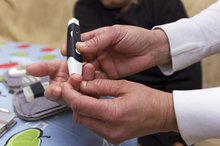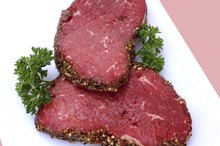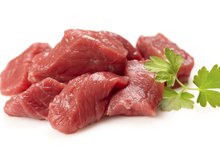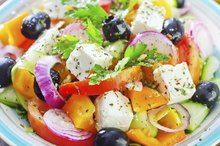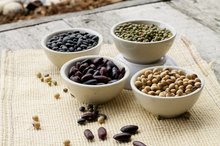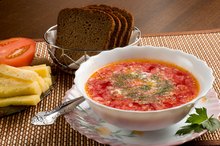Foods to Avoid With Iron
Iron is an essential nutrient your body needs for survival. However, some people, such as those with hemachromatosis, have too much iron in their bodies and must restrict consumption of dietary iron for their health.
Functions of Iron
Iron is a component of red blood cells that assists with supplying oxygen to the body's tissues. Without oxygen, the organs and the body cannot function properly. Iron also plays a vital role in the production of energy within the body.
Hemochromatosis
Can Iron Deficiency Link to Liver Problems?
Learn More
Hemochromatosis is a disorder that interferes with the body's ability to break down iron and results in an excess of iron in the body. Normal people absorb only 4 percent to 8 percent of the iron they consume in foods, but people with hemochromatosis absorb up to four times that much, according to the Hemochromatosis Information Center. Since iron can't be excreted once it enters the human system, iron absorbed at such high rates can build up in the vital organs, eventually resulting in early death. Individuals diagnosed with hemochromatosis must refrain from consuming dietary iron so iron levels in the body do not increase.
Gout
Gout is a painful condition caused by excess uric acid in the body. Symptoms for gout include painful inflammation of the big toe, joint pain and arthritis. Research by Dr. Hugh McGrath and Dr. PG Rigby at the Louisiana State Health Services Center in New Orleans, which was published in the November 2004 issue of Rheumatology, reveals that iron increases inflammation in the body. Since individuals with gout are trying to reduce inflammation, it is advised they also avoid iron foods.
Foods with Low to No Iron
How Long Does Iron Stay in Your System?
Learn More
Dairy products, eggs, raisins, dates, apples, pears, peaches, blueberries, beets, cabbage, almonds, cauliflower, hazelnuts, chocolate bars, pineapples, squashes, kidney beans, fish and many varieties of Campbell's soups have no or low iron content.
Foods to Avoid
The following foods contain high amounts of dietary iron and should be avoided: chard, spinach, thyme, lettuce, molasses, tofu, greens, mushrooms, beef, venison, lentils, chickpeas, broccoli, leeks, sprouts, asparagus, kelp and turmeric. Foods containing vitamin C, such as vitamins and citrus fruits, should also be avoided as vitamin C helps the body absorb iron.
Other Considerations
Caffeinated beverages, chocolate, antacids, phosphate salts, high-calcium foods and excess consumption of high fiber foods can decrease iron absorption in the body.
Related Articles
References
Resources
Writer Bio
Lindsay Nixon has been writing since 2007. Her work has appeared in "Vegetarian Times," "Women's Health Magazine" and online for The Huffington Post. She is also a published author, lawyer and certified personal trainer. Nixon has two Bachelors of Arts in classics and communications from the College of Charleston and a Juris Doctor from the New England School of Law.
